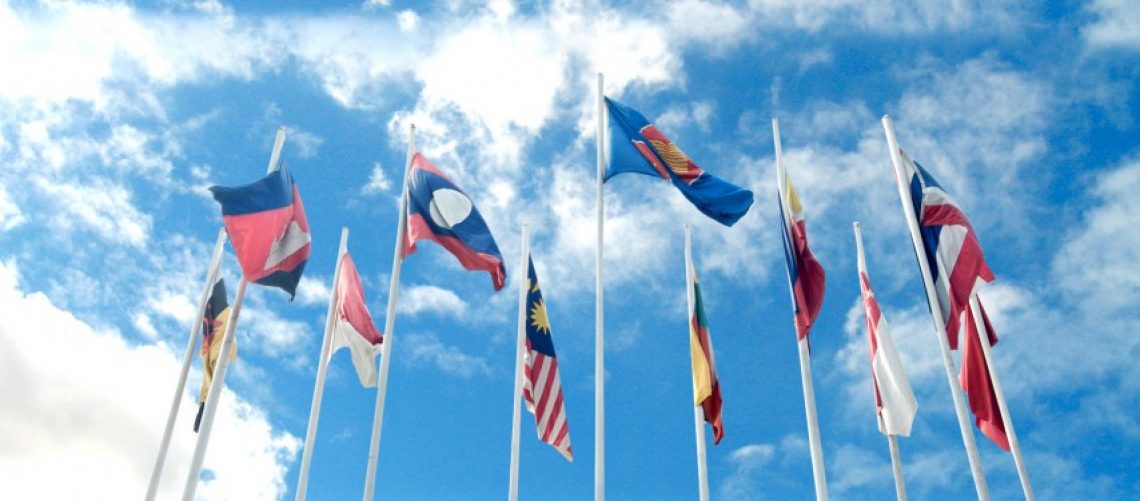1. The Third Meeting between the Foreign Ministers of ASEAN and the Foreign Ministers of the People’s Republic of China, Japan and the Republic of Korea was held in Bandar Seri Begawan, Brunei Darussalam on 30 July 2002. The Meeting was chaired by His Royal Highness Prince Mohamed Bolkiah, Minister of Foreign Affairs of Brunei Darussalam.
2. The Foreign Ministers exchanged views on regional and international issues affecting the region and noted that the overall security environment in the region remains stable despite existing challenges. The Foreign Ministers renewed their commitment to work together to meet those challenges, especially in promoting peace, stability, and economic progress in the region. The Foreign Ministers were also briefed on the latest situation in the Korean Peninsula.
3. The Foreign Ministers were determined to consolidate their joint efforts to counter terrorism and recalled the support of the Northeast Asian partners to carry out cooperation as outlined in the 2001 ASEAN Declaration on Joint Action to Counter Terrorism at the 7th ASEAN Summit in November 2001 in Brunei Darussalam. The Foreign Ministers welcomed the proposal by China for an ASEAN + 3 Ministerial Meeting on Transnational Crime.
4. The Foreign Ministers reviewed the progress of the implementation of the Joint Statement on East Asia Cooperation and follow-up actions to the decisions of the ASEAN + 3 Summit in Brunei Darussalam, in November 2001. The Foreign Ministers expressed satisfaction that the cooperation between ASEAN and the three Northeast Asian countries has been progressing very well in the economic and financial areas, particularly in the implementation of the Chiang Mai Initiative and the bilateral swap arrangements (BSAs). The Foreign Ministers were also pleased with the progress made in other areas of cooperation, including in agriculture, tourism and labour.
5. The Foreign Ministers also agreed to regularise the ASEAN + 3 Directors General Meeting as a coordinating mechanism to ensure coherence, efficiency and progress of ASEAN + 3 process.
6. The Foreign Ministers welcomed Prime Minister Koizumi’s Initiative for Development in East Asia (IDEA) and looked forward to the IDEA Ministerial Meeting to be held in Tokyo on 12 August 2002. The Foreign Minister also welcomed the initiative of Thailand in inaugurating the Asia Cooperation Dialogue in Bangkok on 18-19 June 2002.
7. The Foreign Ministers expressed satisfaction on work being undertaken by the East Asia Study Group in coming up with a practical number of concrete measures for cooperation among the ASEAN + 3 countries as well as the study on the implications of an East Asian Summit.
8. The ASEAN Foreign Ministers expressed their appreciation to China, Japan and Korea for their support to the Initiative for ASEAN Integration (IAI), in particular, in the areas of human resources development, information technology and the ASEAN Mekong Basin Development Cooperation (AMBDC). In this regard, the ASEAN Foreign Ministers also welcomed the participation of China, Japan and Korea to the IAI Development Cooperation Forum (IDCF) to be held in Jakarta, on 15-16 August 2002.
9. The Foreign Ministers also discussed the preparations for the ASEAN + 3 Summit, which would be held in Cambodia on 4 November 2002.
- ABOUT ASEANThe Association of Southeast Asian Nations, or ASEAN, was established on 8 August 1967 in Bangkok, Thailand, with the signing of the ASEAN Declaration (Bangkok Declaration) by the Founding Fathers of ASEAN: Indonesia, Malaysia, Philippines, Singapore and Thailand. Brunei Darussalam joined ASEAN on 7 January 1984, followed by Viet Nam on 28 July 1995, Lao PDR and Myanmar on 23 July 1997, and Cambodia on 30 April 1999, making up what is today the ten Member States of ASEAN.Menu
- WHAT WE DO
ASEAN organs always strive to achieve ASEAN’s goals and objectives, the Secretary-General of ASEAN and the ASEAN Secretariat shall be functioned as coordinating Secretariat to help facilitate effective decision-making withing and amongst ASEAN bodies. In addition, each Member State shall appoint a Permanent Representative to liaise with Secretary-General of ASEAN and the ASEAN Secretariat
Menu - WHO WE WORK WITH
ASEAN shall develop friendly relations and mutually beneficial dialogues, cooperation and partnerships with countries and sub-regional, regional and international organisations and institutions. This includes external partners, ASEAN entities, human rights bodies, non-ASEAN Member States Ambassadors to ASEAN, ASEAN committees in third countries and international organisations, as well as international / regional organisations.
Menu - OUR COMMUNITIES
The rodmap for an ASEAN Community (2009-2015) was declared by the leaders in 2009. The ASEAN Community, anchored on three community pillars: Political-Security Community, Economic Community, Socio-Cultural Community was launched in 2015. The ASEAN 2025: Forging Ahead Together was introduced in 2015 as a Post-2015 Vision. It comprises the ASEAN Community Vision 2025, the ASEAN Political-Security Community Blueprint 2025, the ASEAN Economic Community Blueprint 2025 and the ASEAN Socio-Cultural Community Blueprint 2025
Menu - SITEMAP





